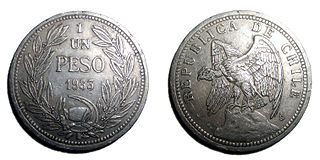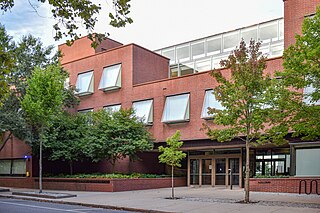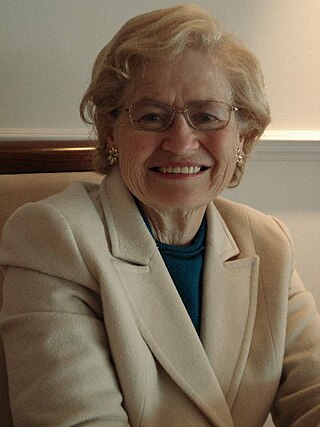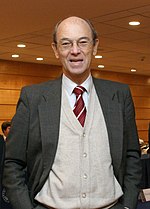
The Chicago Boys were a group of Chilean economists prominent around the 1970s and 1980s, the majority of whom were educated at the Department of Economics of the University of Chicago under Larry Sjaastad, Milton Friedman, and Arnold Harberger, or at its affiliate in the economics department at the Pontifical Catholic University of Chile. After they finished their studies and returned to Latin America, they adopted positions in numerous South American governments including the military dictatorship of Chile (1973–1990), as economic advisors. Many of them reached the highest positions within those governments. Ronald Reagan and Margaret Thatcher were influenced by Chile's policies and economic reforms.

The "Miracle of Chile" was a term used by economist Milton Friedman to describe the reorientation of the Chilean economy in the 1980s and the effects of the economic policies applied by a large group of Chilean economists who collectively came to be known as the Chicago Boys, having studied at the University of Chicago where Friedman taught. He said the "Chilean economy did very well, but more importantly, in the end the central government, the military junta, was replaced by a democratic society. So the really important thing about the Chilean business is that free markets did work their way in bringing about a free society." The junta to which Friedman refers was a military government that came to power in a 1973 coup d'état, which came to an end in 1990 after a democratic 1988 plebiscite removed Augusto Pinochet from the presidency.

The Watson Institute for International and Public Affairs, soon to be renamed Watson School for International and Public Affairs, is an interdisciplinary research center at Brown University in Providence, Rhode Island. Its mission is to promote a just and peaceful world through research, teaching, and public engagement. The institute's research focuses on three main areas: development, security, and governance. Its faculty include anthropologists, economists, political scientists, sociologists, and historians, as well as journalists and other practitioners.

Paul Michael Romer is an American economist and policy entrepreneur who is a University Professor in Economics at Boston College. Romer is best known as the former Chief Economist of the World Bank and for co-receiving the 2018 Nobel Memorial Prize in Economic Sciences for his work in endogenous growth theory. He also coined the term "mathiness," which he describes as misuse of mathematics in economic research.
Arnold Carl Harberger is an American economist. His approach to the teaching and practice of economics is to emphasize the use of analytical tools that are directly applicable to real-world issues. His influence on academic economics is reflected in part by the widespread use of the term "Harberger triangle" to refer to the standard graphical depiction of the efficiency cost of distortions of competitive equilibrium.

Timothy Jerome Kehoe is an American economist and professor at the University of Minnesota. His area of specialty is macroeconomics and international economics.

The economy of Chile has shifted substantially over time from the heterogeneous economies of the diverse indigenous peoples to an early husbandry-oriented economy and finally to one of raw material export and a large service sector. Chile's recent economic history has been the focus of an extensive debate, as it pioneered neoliberal economic policies.

Jean Tirole is a French economist who is currently a professor of economics at Toulouse 1 Capitole University. He focuses on industrial organization, game theory, banking and finance, and psychology. In particular, he focuses on the regulation of economic activity in a way that does not hinder innovation while maintaining fair rules.

Maurice Moses "Maury" Obstfeld is a professor of economics at the University of California, Berkeley and previously Chief Economist at the International Monetary Fund. He is also a nonresident senior fellow at the Peterson Institute for International Economics.

José De Gregorio Rebeco is a Chilean economist, academic, researcher, consultant and politician. He has been the Governor of the Central Bank of Chile, Minister of the Economy, Mining and Energy during the administration of Ricardo Lagos and is currently the Dean of the School of Economics and Business of the Universidad de Chile. He is also a nonresident Senior Fellow at the Peterson Institute for International Economics.

Sebastián Edwards is a Chilean-American economist who has served as the Henry Ford II Distinguished Professor of International Economics at the UCLA Anderson School of Management since 2003.

Stephany Griffith-Jones is an economist specializing in international finance and development. Her expertise lies in the reform of the international financial system, particularly in financial regulation, global governance, and international capital flows. Currently, she serves as a member of the Governor Board at the Central Bank of Chile. She has held various positions throughout her career, including financial markets director at the Initiative for Policy Dialogue based at Columbia University, associate fellow at the Overseas Development Institute, and professorial fellow at the Institute of Development Studies at Sussex University.

The Crisis of 1982 was a major economic crisis suffered in Chile during the military government of Chile (1973–1990). Chile's GDP fell 14.3%, and unemployment rose to 23.7%.
Duncan K. Foley is an American economist. He is the Leo Model Professor of Economics at the New School for Social Research and an External Professor at the Santa Fe Institute. Previously, he was Associate Professor of Economics at MIT and Stanford, and Professor of Economics at Columbia University. He has held visiting professorships at Woodrow Wilson School at Princeton University, UC Berkeley, and Dartmouth College, as well as the New School for Social Research.

James Alan Robinson is a British-American economist and political scientist. He is the Rev. Dr. Richard L. Pearson Professor of Global Conflict Studies and a University Professor at the Harris School of Public Policy at the University of Chicago. At Harris, he also directs The Pearson Institute for the Study and Resolution of Global Conflicts. Robinson previously taught at Harvard University from 2004 to 2015.
The National Prize for Humanities and Social Sciences was created in Chile in 1992 under Law 19169. It is granted "to the humanist, scientist, or academic, who has distinguished himself for his contribution in the field of Human Sciences". The history field has its own National Award.

Justus Haucap is a German economist who currently works as Professor of Economics at the University of Düsseldorf, where he directs the Düsseldorf Institute for Competition Economics (DICE). The focus of his research is on competition and antitrust as well as the regulation of network industries and the digital economy. In 2015, Haucap was awarded the Gustav Stolper Prize for his contributions to competition policy in Germany.
Pierre-Olivier Gourinchas is a French economist who has been the Chief Economist of the International Monetary Fund since 2022. Gourinchas is also the S.K. and Angela Chan Professor of Management at the University of California, Berkeley. At the University of California, he also directs the Clausen Center for International Business and Policy and is affiliated with the Haas School of Business. His research focuses on macroeconomics, in particular international macroeconomics and international finance. In 2008, Gourinchas received the Prize of the Best Young Economist of France.

Chicago Boys is a 2015 Chilean documentary film written and directed by Carola Fuentes & Rafael Valdeavellano. The film tells the story of the Chicago Boys, a group of Chilean economists trained at the Catholic University of Chile who, after conducting graduate studies at the University of Chicago under professor Arnold Harberger, return to their country and, after Augusto Pinochet's military dictatorship (1973–1990), become the main ideologues of the neoliberal economic model in Chile.













